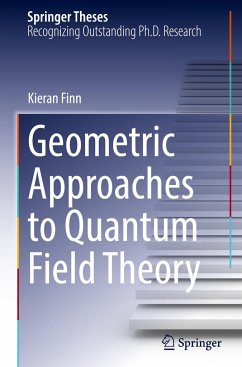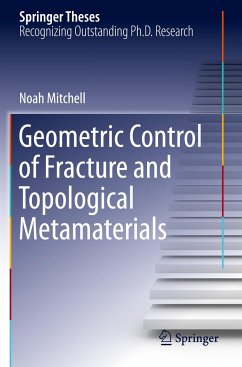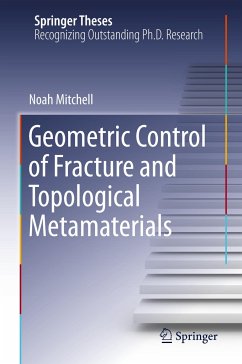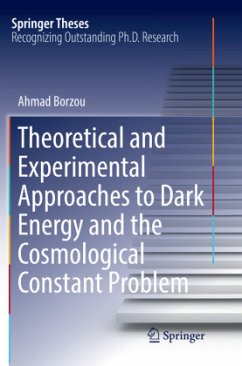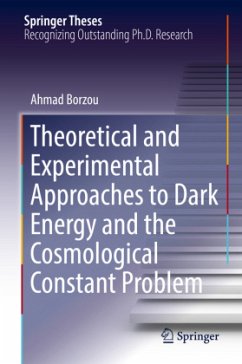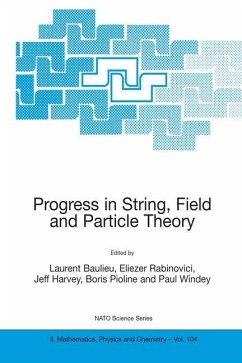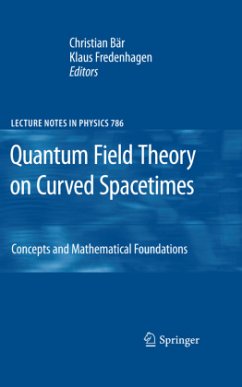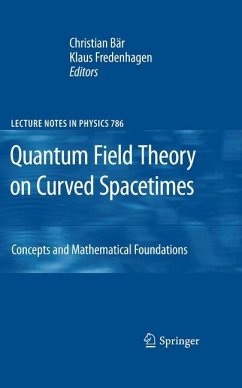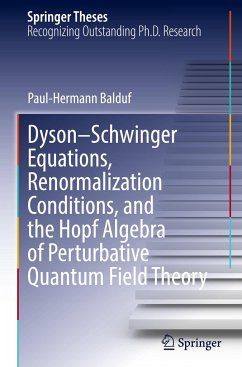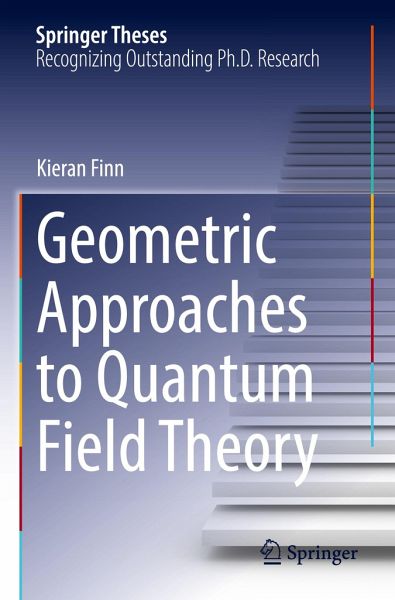
Geometric Approaches to Quantum Field Theory
Versandkostenfrei!
Versandfertig in 6-10 Tagen
129,99 €
inkl. MwSt.
Weitere Ausgaben:

PAYBACK Punkte
65 °P sammeln!
The ancient Greeks believed that everything in the Universe should be describable in terms of geometry. This thesis takes several steps towards realising this goal by introducing geometric descriptions of systems such as quantum gravity, fermionic particles and the origins of the Universe itself.The author extends the applicability of previous work by Vilkovisky, DeWitt and others to include theories with spin ½ and spin 2 degrees of freedom. In addition, he introduces a geometric description of the potential term in a quantum field theory through a process known as the Eisenhart lift. Finall...
The ancient Greeks believed that everything in the Universe should be describable in terms of geometry. This thesis takes several steps towards realising this goal by introducing geometric descriptions of systems such as quantum gravity, fermionic particles and the origins of the Universe itself.
The author extends the applicability of previous work by Vilkovisky, DeWitt and others to include theories with spin ½ and spin 2 degrees of freedom. In addition, he introduces a geometric description of the potential term in a quantum field theory through a process known as the Eisenhart lift. Finally, the methods are applied to the theory of inflation, where they show how geometry can help answer a long-standing question about the initial conditions of the Universe.
This publication is aimed at graduate and advanced undergraduate students and provides a pedagogical introduction to the exciting topic of field space covariance and the complete geometrization of quantum field theory.
The author extends the applicability of previous work by Vilkovisky, DeWitt and others to include theories with spin ½ and spin 2 degrees of freedom. In addition, he introduces a geometric description of the potential term in a quantum field theory through a process known as the Eisenhart lift. Finally, the methods are applied to the theory of inflation, where they show how geometry can help answer a long-standing question about the initial conditions of the Universe.
This publication is aimed at graduate and advanced undergraduate students and provides a pedagogical introduction to the exciting topic of field space covariance and the complete geometrization of quantum field theory.





